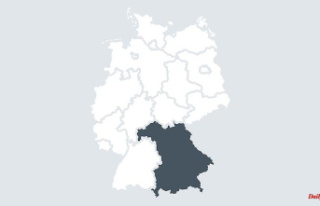In German groundwater, the permissible nitrate values are often exceeded. That is why the EU has been calling for countermeasures for years. This affects the farmers above all - with consequences.
Schwerin (dpa/mv) - Minister of the Environment and Agriculture Till Backhaus fears that farmer protests will take place in autumn, as is currently the case in the Netherlands and in Mecklenburg-Western Pomerania. The reason he gave on Tuesday was the new fertilizer ordinance according to EU and federal regulations, with which fertilizer can only be spread to a limited extent on up to 47 percent of the country's agricultural area. This proportion is currently 13 percent. "I am concerned that we are experiencing radicalization in the agricultural sector," said the SPD politician.
Dutch farmers had blocked several motorways with tractors in protest against planned environmental regulations, causing long traffic jams. In Germany, farmers protested last year primarily against price dumping in the food trade, but also against specifications for reduced fertilizer use to protect drinking water. Less fertilizer usually means lower yields.
According to Backhaus, Germany is obliged by the EU to drastically reduce the nutrient input under threat of high fines. Significantly stricter regulations would apply in drinking water protection areas in particular. The draft of the new state fertilizer ordinance is available and must come into force by November 30 at the latest. It prescribes a 20 percent reduction in fertilizer use for regions with excessive nitrate levels. The common goal must be to ensure clean water for future generations. "Agriculture must see itself as part of the solution," emphasized Backhaus.
According to previous reports, nitrate limits were exceeded in 39 of the 53 groundwater bodies in the country. "Water has to be clean," said the minister. The EU has long been pushing to improve water quality.












